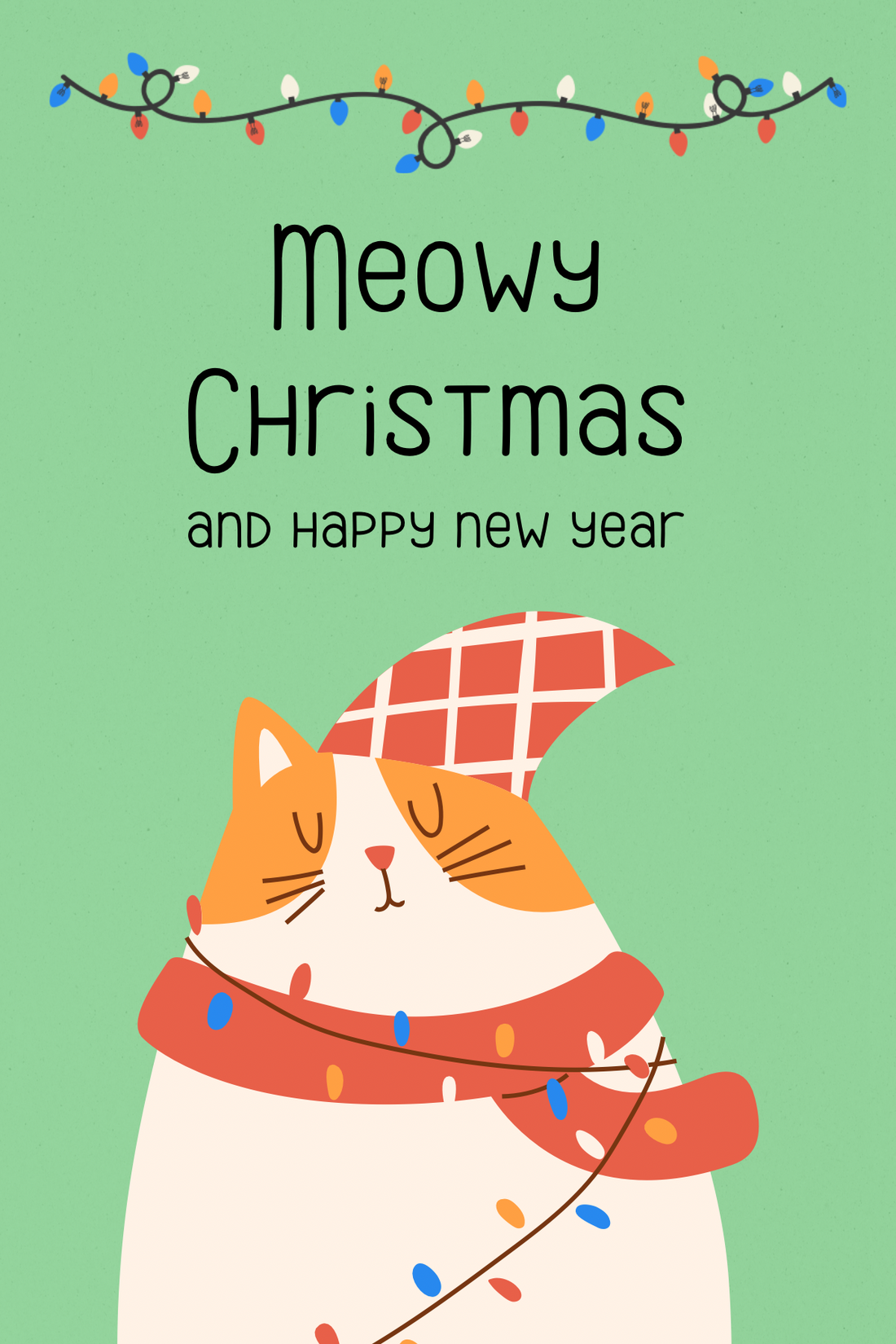As the holiday season approaches, many pet owners decorate their homes with festive greenery and flowers. While these decorations add to the holiday spirit, it's important to be aware that some popular holiday plants can be toxic to cats. Among these toxic plants are holly and mistletoe, which are commonly used in holiday decorations but pose a risk to our feline friends.
Holly (Ilex) has long been associated with the Christmas season, with its bright red berries and glossy, dark green leaves making it a popular choice for wreaths, centerpieces, and other festive decorations. However, all parts of the holly plant, including the leaves and berries, contain potentially toxic compounds called saponins and methylxanthines. When ingested by cats, these substances can cause gastrointestinal upset, such as drooling, vomiting, and diarrhea. In more severe cases, holly poisoning can lead to dehydration, decreased appetite, and lethargy.
Mistletoe, another iconic holiday plant, is a parasitic plant that grows on trees and is often used in doorways and as a decorative element in holiday arrangements. Mistletoe berries contain toxalbumin and phoratoxin, which can cause symptoms such as vomiting, diarrhea, difficulty breathing, and erratic behavior in cats. Ingestion of mistletoe can be particularly dangerous, as it can lead to more severe complications, including cardiovascular issues and potentially fatal outcomes.
As responsible pet owners, it's important to be aware of the potential dangers that these festive plants can pose to our feline companions. Here are some tips to keep your cats safe during the holidays:
1. Choose Pet-Friendly Decorations: When selecting holiday plants and decorations, opt for pet-friendly alternatives. Look for artificial holly and mistletoe, or consider using other non-toxic plants such as Christmas cactus, spider plants, or pet-safe grasses in your holiday displays.
2. Secure Your Greenery: If you do choose to have holly and mistletoe in your home, make sure they are displayed out of your cat's reach. Place them in high locations or areas where your cat cannot easily access them, such as hanging mistletoe well above the ground and keeping holly wreaths securely fastened to doors or walls.
3. Educate Family and Guests: Inform family members and holiday guests about the potential risks associated with certain holiday plants for cats. Remind them not to leave these plants within reach of curious feline companions.
4. Watch for Symptoms: Keep a close eye on your cat during the holiday season and be vigilant for any signs of illness. If you suspect that your cat has ingested holly, mistletoe, or any other toxic plant, seek veterinary care immediately.
In addition to holly and mistletoe, other common holiday plants such as poinsettias, amaryllis, and lilies can also be toxic to cats. Poinsettias, while often mistakenly thought to be highly toxic, can cause mild gastrointestinal upset but are generally not life-threatening to cats. Amaryllis and lilies, however, present more serious threats. Ingestion of amaryllis bulbs and flowers can cause symptoms such as vomiting, depression, and abdominal pain in cats, while lilies, especially those of the Lilium and Hemerocallis species, can lead to kidney failure if ingested by cats.
To keep your furry friends safe, here are some additional precautions to take:
5. Research Plants Before Purchasing: Before bringing any new plants into your home, research their toxicity to cats. Make informed decisions about which plants are safe to have around your pets.
6. Create a Safe Environment: Designate certain areas of your home as pet-friendly zones, free from any potentially harmful plants. Create indoor green spaces with cat-friendly plants to provide a natural and safe environment for your pets.
7. Be Prepared: Keep the contact information for a local emergency veterinary clinic readily available in case of an accidental poisoning. Time is crucial in treating plant toxicities, and having a plan in place can save valuable minutes in an emergency.
By being mindful of the plants and decorations you bring into your home during the holiday season, you can help ensure that your cats stay safe and healthy. Remember, prevention is key, but if you suspect your cat has ingested a toxic plant, seek prompt veterinary attention. With a little extra attention and care, you can enjoy the festive season while keeping your furry companions out of harm's way.

